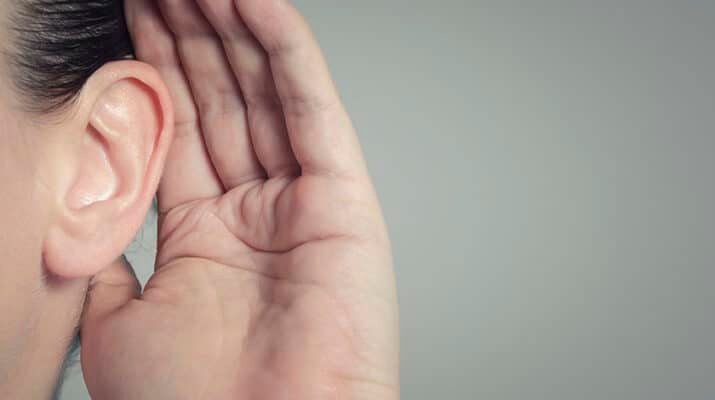By Deborah Jeanne Sergeant
Many people associate hearing loss with older war veterans or people who have worked for 40 years in a noisy factory.
However, many less well-known things can cause hearing loss. For example, unmanaged diabetes can bear many life-altering consequences, but hearing loss is not one many people consider.
“There are a lot of common medical conditions that occur as people age that increase their risk of progressive hearing loss,” said Jill Bernstein with Hearing Evaluation Services of Buffalo, Inc. “In particular, high blood pressure and high cholesterol increase the risk of hearing loss because of how they affect our circulation. The cells of the ear that are essential for hearing need good blood circulation. Also, hearing loss is twice as common in adults with type-2 diabetes and 30% higher in adults who are pre-diabetic.”
The middle ear bones are part of the hearing process. When bony deposits accumulate on these bones (ossification), they become so stiff that their ability to conduct sound lessens. Surgery can treat this kind of hearing loss.
Salvatore Gruttadauria, audiologist with Diversified Hearing & Balance Centers in Buffalo, said that a cholesteatoma can cause hearing loss as these non-cancerous cysts can destroy the small bones in the ear that convey sound to the auditory nerve.
“Their auditory nerve still functions well, but the system in which sound is conveyed to the nerve is destroyed,” he explained. “The hearing can be very impaired. They might notice draining or fluid. It might feel like increased pressure. If they go for a hearing test, there are signs we’d look for. For the most part, it’s one of those things that people don’t recognize they have it until it’s too late.”
Meniere’s disease is another cause of one-sided hearing loss because of one of the fluids in the inner ear is too high. Tinnitus and occasional vertigo can accompany it. Treatment includes medications to manage the vertigo and nausea, diuretics and anti-anxiety medications.
Some medications can cause hearing loss. Called ototoxic, the amount of the medication taken matters. Patients should discuss the risks and benefits of all medication.
“Another thing less common is autoimmune inner ear disease,” Gruttadauria said. “The immune system attacks good cells in the inner ear. It can cause hearing loss and dizziness. We consider something like that a medical emergency. People need to see their audiologist right away.”
Many times, people attribute hearing loss to the aging process. That typically is symmetrical, although non-age-related hearing loss can by asymmetrical.
“The other thing that people should look for is sudden hearing loss,” said Gruttadauria. “Sudden sensory neural hearing loss is when suddenly a person loses their hearing or part of it is decreased. Most people think when that happens that they have fluid or wax in their ears. In many cases, it is an infection, more commonly viral that hits one or both ears, usually one.”
He urges people experiencing this to seek medical attention immediately.
“Once diagnosed, there are things we can do to reverse it,” he said. “If you wait too long, the window of opportunity is gone. That is much more common than you would think.”
He said that has seen patients who thought wax build-up caused their muffled hearing, only to learn too late that their viral infection has permanently damaged their hearing.

